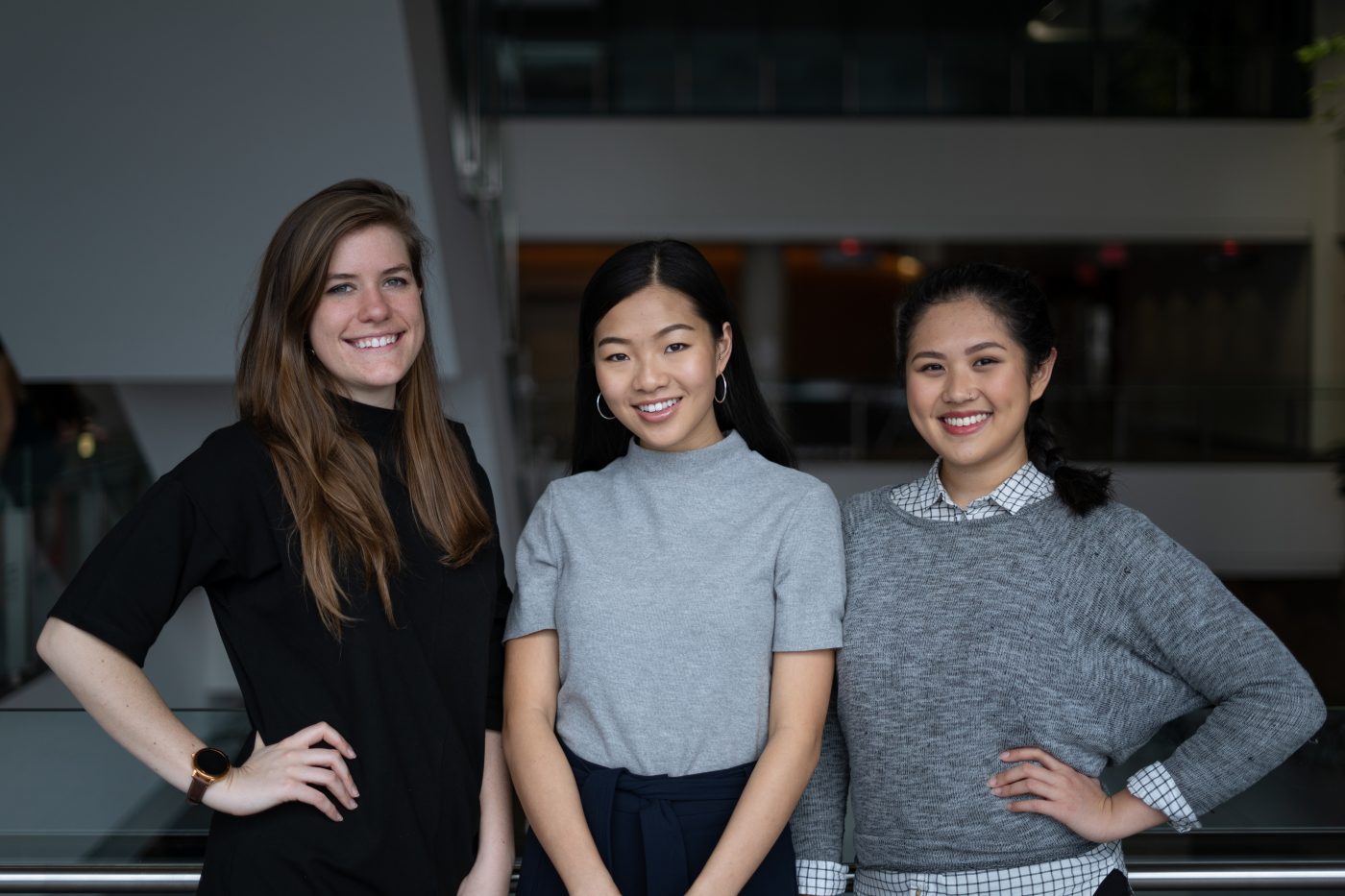Mitacs Globalink Students in Western Europe

Mitacs award winners (L to R) Bridget Healy, Dede Huang, and Risny Tan
Three Faculty of Public Affairs students have received the 2019/2020 Mitacs Globalink Research Award to conduct migration research across Western Europe.
The award provides $6,000 for senior Canadian undergraduate, graduate students, and postdoctoral fellows to spend 12-24 weeks on a research project at an overseas institution.
2019/2020 Mitacs Globalink Research Award Winners
Bridget Healy
MA Institute of European, Russian, and Eurasian Affairs (2020), Carleton University
Destination: Brussels, Belgium
What role do EU institutions play in the European Union’s ability to attract and retain high-skilled, third-country nationals to boost innovation and economic growth?
The European Union is often described as a ‘supra-national’ entity – one with significant economic attractiveness as the guarantor of the European Single Market. Despite this attractiveness to foreign STEM talent, migration control and ‘say’ largely lies with each individual Member State (EU-28). I find this research fascinating – with overlapping layers of political systems and priorities, it will be important to see how EU institutions push for greater global competitiveness for talent (migration for innovation).
Dede Huang
BA Public Affairs and Policy Management (2020), Carleton University
Destination: London, UK
What current approaches and practices do UK universities institute to attract and retain emerging STEM talent? What role do UK universities play in larger, national innovation goals?
The United Kingdom is in a very public moment of change – although it has been an innovation leader, it is still facing skills shortages. The political uncertainty stemming from the UK’s exit from the EU (Brexit) is likely exasperating this situation. One of the major sources of Science, Technology, Engineering and Mathematics (STEM) talent includes international students at UK universities. Finding out what current approaches and practices are taken up by UK universities in this area may have major implications for the UK’s innovation potential in the years to come.
Risny Tan
BA Political Science, Economics (2020), Carleton University
Destination: Berlin & Thuringia, Germany
How do social conditions (levels of discrimination and racism) affect a region’s ability to attract and retain highly-skilled STEM talent from abroad?
While Berlin has been able to attract global talent with emerging clusters in the tech industry, Thuringia seems to struggle with its openness – resulting in persistent racism and repeated attacks against foreigners. This may have a dampening effect, undermining recruitment efforts undertaken by technology companies. This work hopes to illustrate the importance of social factors that are often neglected in the discussion of competitiveness and the drive for innovation.
These important research initiatives have been made possible by Mitacs and the Centre for European Studies (CES) Jean Monnet Centre for Excellence at Carleton University.
Images courtesy of PB Photography.
To keep up with the reporting from this research, and to read other international research reports, look no further than our Outcomes section at http://migrationforinnovation.info/outcomes.
This story was originally published by Faculty of Public Affairs on Wednesday, May 1, 2019.